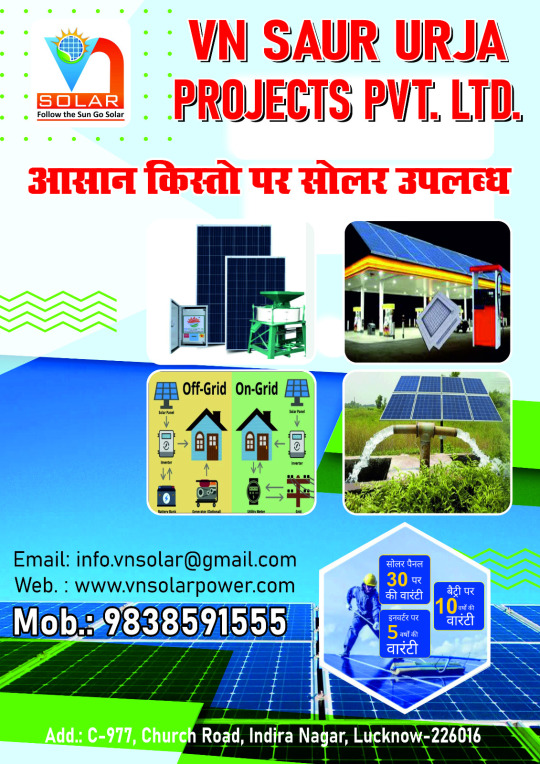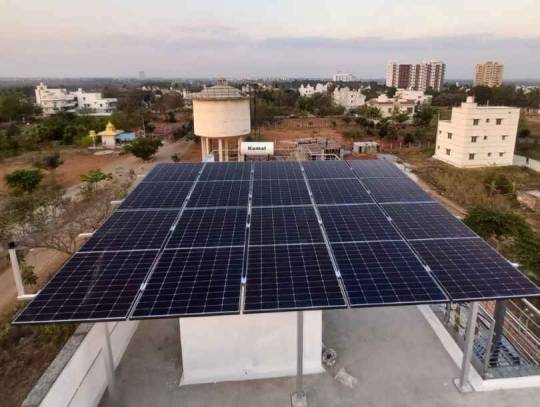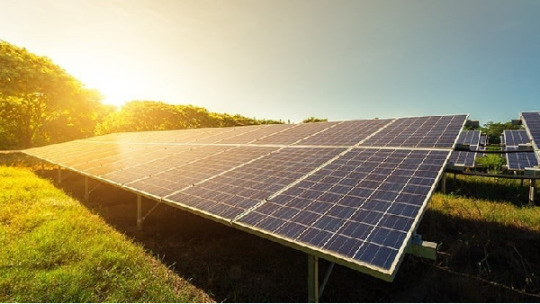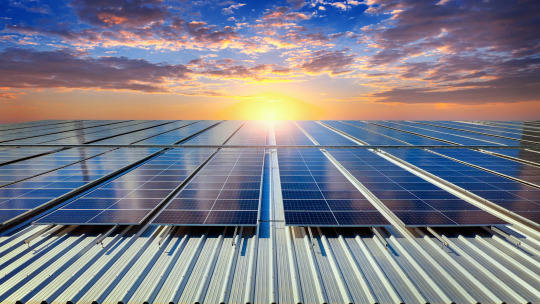#Solar panel for home
Text
https://livsmartsolar.in/solar-panels-for-mobile-home-in-2024-advantages-price-in-india/
2 notes
·
View notes
Text
#on grid solar panel advantages#solar panel for home#solar panel installation#solar panel cost#solar panel installers near me#solar panel system#solar panel#solar energy#solar company in lucknow#solar panel suppliers#best solar company in lucknow#solar panel dealers in lucknow#solar panel distributor in lucknow#solar panel company in lucknow
0 notes
Text

Solar panels for atta chakki, or flour mills, offer a sustainable and cost-effective solution for powering these essential agricultural machines. By harnessing the sun's abundant energy, solar panels generate clean electricity to operate the motors and machinery required for grinding grains into flour. This renewable energy source reduces reliance on traditional fossil fuels, such as diesel or electricity from the grid, lowering operating costs and minimizing environmental impact. Solar panels can be installed on rooftops or ground-mounted structures near the atta chakki, providing a reliable and uninterrupted power supply even in remote or off-grid locations.
0 notes
Text

Solar Panel for Home
Empower your home and industry with sustainability and style. Make the switch to solar panel with Servotech and power up your house life.
0 notes
Text
सोलर पैनल पर भारी छूट अब आसान किस्तों पर लगवाओ सोलर सिस्टम और बिजली बिल से पाएं छुटकारा
0 notes
Text
What is Solar panel ?
A solar panel, also called a photovoltaic (PV) panel, is a device that converts sunlight into electricity. It's made up of numerous solar cells, which are the basic unit of a solar panel. Here's a breakdown of how it works:
Sunlight Capture: When sunlight hits a solar cell, it contains energy particles called photons.
The Photovoltaic Effect: These photons excite electrons within the solar cell, causing them to flow and create an electric current.
Direct Current (DC) Electricity: Each solar cell produces a small amount of DC electricity.
The Inverter: A solar panel system typically includes an inverter that converts the DC electricity from the panels into usable Alternating Current (AC) electricity for your home appliances.
Solar panels are often connected together in groups called arrays to generate more electricity. They're a clean and renewable energy source that can help you reduce your reliance on the grid and potentially lower your electricity bills.
#solar energy#solar panel#solar panel for home#solar panel cleaning#solar panel installation#solar panel price#solar panel manufacturers#solar panel services#solar panel system#solar panels
0 notes
Text
Financial Benefits: Solar panels significantly reduce your reliance on grid electricity, leading to substantial savings on your monthly bills. In Colchester, Orton & Wenlock can design a system to maximize those savings.
#SolarSavingsColchester#solar energy#solar panel#solar panel cleaning#solar panel installation#solar panel manufacturers#solar panel for home#solar panel system#solar panel price#solar panel services#solar panels
0 notes
Text

अब आसान किस्तों पर सोलर लगवाएं, बिजली के
बिल से छुटकारा पाए। 🤩
👉बिजली के बिल से छुटकारा पाने के लिए अपने आवास के छत
पर On Grid सोलर पावर प्लांट लगवाएं , तथा राज्य सरकार और
केंद्र सरकार द्वारा दिए जाने वाले अनुदान का लाभ उठाये।
☀️☀️
👉सोलर पैनल इंस्टॉल करवाएं बिजली बिल में बचत पाएं VN
saur urja projects Pvt. Ltd.
.
📱Complete Details Contact us at 91 98385 91555
🌐https://vnsolarpower.com/
.
#solarpanels #solarpanelsinstallation
#WeatherProtection #gogreen #followthesungosollar☀️
#clean #greenfuture #ecofriendly #solarpower
#rooftopsolarpanels #greensource #getsubsidy
#statesubsidy #GoSolar #solarenergy #vnsolarpower
#bestsolarpanelslucknow #SolarServices
#solar panel kit for balcony#solar panel manufacturer#solar panel for home#solar panel price#solar panel maintenance#solar power#solar system#solar panel system#vn solar power lucknow#solar panel cleaning#solar panel installation
0 notes
Text

Solar panels harness sunlight to generate electricity. Comprising photovoltaic cells, they convert sunlight into direct current (DC) electricity. An inverter then transforms it into alternating current (AC) for use. This eco-friendly technology reduces reliance on traditional energy sources, mitigating environmental impact. As advancements improve efficiency and affordability, solar panels emerge as a sustainable solution, fostering a greener, cleaner future.
0 notes
Text
Best Solar Panel for Home

If you are looking for a cost-effective and environmentally friendly way to power your home, solar panels may be your solution. Solar system harness solar energy to produce electricity that may be utilized to run your house or place of business. In this guide, we will discuss the advantages of solar panels, the benefits of Mon Perc Solar Panels, the associated costs, and the government's schemes and subsidies available. We will also look at the EMI facility offered by Loom Solar and help you determine if solar power is right for you.
Introduction to Solar Panels
youtube
Photovoltaic (PV) cells in solar panels use light from the sun to generate electricity. The silicon layers that make up the PV cells receive solar energy from the sun and transform it into direct current (DC) electricity. This DC electricity is then transformed into AC electricity by an inverter, which may be utilized to power your house or place of business. You can put solar panels on your roof or the ground, depending on your taste and available space.
What are the Advantages of Solar Panels?
Solar electricity is often wont to power your home or business because of several benefits. Solar power is renewable. Therefore, it'll never run out, which is one of its main advantages. In contrast, conventional fossil fuels are limited resources that will eventually run out. The utilization of solar power is environmentally friendly because it's clean and doesn't emit greenhouse gases. Solar panels can also lower your reliance on the grid, which may lower energy costs.
Why Choose Mon Perc Solar Panels?
Monocrystalline solar panels, or Mon Perc panels, are one kind of best solar panel. Due to their higher efficiency compared to polycrystalline cells, monocrystalline cells can produce more power from a given amount of sunlight. As they are less prone to cracking and other types of damage, Mon Perc Solar Panels are also more resilient than other varieties of solar panels.
What is the price of a Mon Perc Solar Panel?
The cost of a Monocrystalline PERC (Passivated Emitter and Rear Cell) solar panel in India can vary depending on factors such as the brand, capacity, efficiency, and installation charges. On average, a 330-watt Mon PERC solar panel in India can cost anywhere between INR 15,000 to INR 22,000 per panel.
What programs or subsidies does the government offer in this area?
The Indian government has launched several schemes and subsidies to promote the use of solar energy and encourage the adoption of best solar panels. Here are some of the key schemes and subsidies for solar panels in India:
Capital Subsidy
Some state governments offer a capital subsidy for the installation of solar panels. For instance, the Government of Telangana provides a 15%
Rooftop Solar Scheme
This scheme is launched by the Ministry of New and Renewable Energy to encourage the adoption of rooftop solar panels in residential, commercial, and industrial buildings.
Solar Energy Corporation of India (SECI) Scheme
SECI provides various incentives and subsidies for installing solar panels for government buildings and public sector undertakings.
Loom Solar EMI Facility
Loom Solar is a leading distributor of Mon Perc Solar Panels in India. They offer an EMI facility that allows you to pay monthly instalments for your solar panel system, making it more affordable for homeowners on a budget. Loom Solar's EMI facility is available for up to 12 months, with no down payment required.
Conclusion
A cost-efficient and sustainable approach to power your house or place of business is with solar panels. Mon Perc Solar Panel is a wonderful option for homeowners looking for a robust, effective, and visually beautiful solar panel system. Although the initial cost of installing solar panels may seem excessive, the long-term cost reductions and government incentives help many homeowners see it as a wise investment. Do your homework and locate a reliable installer who can guide you through the process if you want to install solar panels.
0 notes
Text
What Is The Cost Of Installing Solar Panels In Delhi
Solar panels have become popular in Delhi as residents seek sustainable energy solutions to combat pollution and rising electricity costs. These photovoltaic systems harness sunlight to generate electricity, providing a clean and renewable energy source for homes, businesses, and institutions across the city. With Delhi’s abundant sunlight throughout the year, solar panels offer an efficient means of reducing carbon emissions and reliance on fossil fuels. Rooftop solar installations have gained popularity among homeowners, enabling them to generate their electricity and reduce their environmental footprint. Additionally, commercial and industrial sectors are embracing solar power to lower operational costs and demonstrate corporate social responsibility. As Delhi continues to prioritize sustainability and clean energy initiatives, the adoption of solar panels is expected to grow, contributing to a greener and more sustainable future for the city and its residents.

Cost of solar panel
To obtain accurate pricing information for solar panels price in delhi. it is recommended to contact local solar installers or companies for customized quotations based on your specific needs and site conditions. They can provide insights into available financing options, incentives, and rebates that may further offset the cost of solar panel installation in delhi.

Benefits of solar panels in delhi
There are several benefits of installing solar panels in Delhi:
Cost Savings: Solar panels can help homeowners and businesses in Delhi reduce their electricity bills by generating clean energy from sunlight. With abundant sunlight throughout the year, solar energy can provide significant savings on electricity costs over the long term.
Environmental Sustainability: By harnessing solar energy, residents of Delhi can reduce their carbon footprint and contribute to environmental sustainability. Solar panels generate electricity without emitting greenhouse gases or pollutants, helping to mitigate climate change and improve air quality.
Energy Independence: Solar panels provide homeowners and businesses with energy independence by allowing them to generate their own electricity on-site. This reduces reliance on the grid and fossil fuels, providing greater control over energy consumption and costs.
Grid Stability: Solar panels can help improve grid stability in Delhi by reducing the strain on the electrical grid during peak demand periods. Distributed solar generation can help balance supply and demand, reducing the risk of power outages and grid failures.
Financial Incentives: The government of Delhi and central government of India offer various financial incentives, subsidies, and tax credits to promote solar energy adoption. These incentives can help offset the upfront costs of solar panel installation and make solar energy more affordable for residents and businesses.
Job Creation: The solar industry in Delhi is a growing sector that creates jobs and stimulates economic growth. Solar panel installation, maintenance, and manufacturing activities contribute to job creation and provide employment opportunities for local residents.
Resilience: Solar panels can provide backup power during grid outages or emergencies, ensuring continuity of electricity supply for critical loads such as lighting, refrigeration, and communication devices.
Types of solar Panels in delhi
In Delhi, various types of solar panels are available to suit different applications and preferences. Some common types include:
Monocrystalline Solar Panels: These panels are made from single-crystal silicon, known for their high efficiency and sleek appearance. Monocrystalline panels are ideal for applications where space is limited or maximum energy production is desired.
Polycrystalline Solar Panels: Polycrystalline panels are made from multiple silicon crystals melted together, offering a cost-effective alternative to monocrystalline solar panels. While slightly less efficient, polycrystalline panels are suitable for applications where cost is a primary consideration.
Bifacial Solar Panels: Bifacial panels can generate electricity from both the front and rear sides, capturing sunlight reflected off the ground or surrounding surfaces. These panels offer increased energy production and are suitable for installations with reflective surfaces or elevated mounting.
Thin-Film Solar Panels: Thin-film panels are made by depositing thin layers of photovoltaic material onto a substrate, such as glass or metal. These panels are lightweight, flexible, and suitable for applications where traditional solar panels may not be feasible.
Building-Integrated Photovoltaics (BIPV): BIPV systems integrate solar panels directly into building materials, such as roof tiles or facades, providing both energy generation and architectural functionality.
Solar Roof Tiles: Solar roof tiles resemble traditional roofing materials but contain integrated solar cells to generate electricity. These tiles offer a seamless and aesthetically pleasing solar solution for residential and commercial buildings.
How to install solar panels in delhi
Installing solar panels in Delhi typically involves several steps:
Site Assessment: Begin by assessing your site to determine its suitability for solar panel installation. Factors to consider include roof orientation, shading, structural integrity, and available space for solar panels. It’s also important to check local regulations and building codes governing solar installations in Delhi.
Design and Planning: Work with a solar installer or consultant to design a solar system tailored to your specific needs and site conditions. This involves determining the optimal size and configuration of the solar array, selecting appropriate solar panels and mounting equipment, and designing the electrical layout.
Permitting and Approvals: Obtain any necessary permits and approvals required for solar panel installation in Delhi. This may include building permits, electrical permits, and approval from your local utility or electricity provider.
Procurement: Purchase solar panels, inverters, mounting hardware, and other necessary equipment from reputable suppliers or manufacturers. Ensure that the equipment meets quality standards and is compatible with your solar system design.
Installation: Hire a qualified solar installer or contractor to install the solar panels on your roof or property. The installation process typically involves mounting the panels, connecting them to the electrical wiring, and installing the inverter and other system components.
Electrical Connection: Once the solar panels are installed, they need to be connected to your home’s electrical system. This involves wiring the solar panels to the inverter, which converts the DC electricity generated by the panels into usable AC electricity for your home.
Grid Connection (for On-Grid Systems): If you’re installing an on-grid solar system, you’ll need to coordinate with your local utility or electricity provider to connect your solar system to the grid. This may involve installing a net metering arrangement to track electricity production and consumption.
Commissioning and Testing: After the solar system is installed and connected, it needs to be commissioned and tested to ensure that it is functioning correctly and safely. This may involve performing system checks, verifying electrical connections, and testing the performance of individual components.
Monitoring and Maintenance: Once your solar system is up and running, it’s essential to monitor its performance regularly and perform routine maintenance to ensure optimal operation. This may include cleaning the solar panels, inspecting electrical connections, and checking for any signs of damage or malfunction.
Conclusion — solar panels offer a promising solution to address energy needs in Delhi, India’s bustling capital. With its abundant sunlight and growing energy demands, Delhi benefits significantly from adopting solar power. Solar panels provide residents and businesses with a clean, renewable energy source that reduces reliance on fossil fuels, mitigates air pollution, and contributes to environmental sustainability. Despite initial upfront costs, the long-term financial savings, coupled with government incentives and rebates, make solar panel installations an attractive investment in Delhi.
#solar panel for home#solar panel price in delhi#ujjawalsolar#solar panel installation in delhi#solar system
0 notes
Text

Rooftop Solar Panel For Home
Raise your home's energy game with Servotech's Rooftop Solar Panels for your home. Tailored for residential use, our panels seamlessly integrate into your roof, harnessing the sun's power to reduce bills and carbon footprint. Experience the simplicity of sustainable living as Servotech brings solar innovation directly to your doorstep.
#solarpanels#solar panel for home#rooftop solar panel#rooftopsolarpanelforhome#rooftopsolar#rooftopsolarsystem#servotech
0 notes
Text

Have you wondered how do solar panels work on a house? If you’re considering buying a solar panel for your home, then you might want to learn more about how they work.
0 notes
Text
Best Grid Solar System For Home

Solar grid systems are a great way to save money on your energy bill and be more environmentally friendly. But with so many different types of solar grid systems available, how do you know which one is right for your home? This article will help you understand the different types of solar grid systems so that you can make an informed decision as to which one is best for you.
There are many different types of solar systems available on the market today, so how do you know which is the best off-grid solar system for your home? Here are some things to consider in making your decision:
The size of your home: A larger home will require a more powerful system to generate enough electricity to offset your energy usage.
The average amount of sunlight your home receives: A sunny location will obviously be better suited for solar power than a shady one.
Your energy needs: If you have high energy usage, you'll need a larger and more powerful system.
Your budget: Solar systems can range in price from a few thousand dollars to tens of thousands, so it's important to find one that fits your budget.
Once you've considered all these factors, you should have a pretty good idea of what type of off-grid solar system would be best for your home. Do some research and compare prices to find the right system for your needs and budget.
What are the benefits of solar energy?
Solar energy is becoming increasingly popular as a source of renewable energy. Solar energy can be used to generate electricity, heat water or air, or power appliances. Solar energy is also becoming more affordable as technology improves and costs decrease. Solar power has many benefits, including:
Solar energy is a renewable resource. Once installed, a solar power system will continue to produce energy for many years with little or no maintenance required.
Solar power is emission-free. Generating electricity from solar energy does not produce any greenhouse gases or other pollutants.
Solar power can save you money. A typical residential solar power system can save a home as much as $1,000 per year on its energy bill. In addition, solar power systems increase the value of your home.
Solar energy is reliable. The solar panels will continue to produce electricity even when it is cloudy or raining or snowing.
Solar energy is versatile. Solar panels can be used to power homes, businesses, schools, and other buildings. They can also be used to generate electricity for electric vehicles or to heat water for swimming pools or hot tubs.
How Do Solar Panels Work?
Solar panels are devices that convert sunlight into electricity. They are made up of an array of solar cells, linked together. Solar cells are made of semiconductor materials such as silicon. When sunlight hits a solar cell, it causes electrons to be freed from their atoms. These free-flowing electrons are captured by the metal contacts on the sides of the cell, and they flow through the metal to create an electric current.
conclusion
Overall, the best grid solar system for the home will be one that is capable of covering all of your energy needs and then some. This way, you won't have to worry about supplementing your power with conventional means or going without power during a grid outage. With the right solar system, you can even make some money selling your excess electricity back to the utility company. Do your research and find a reputable solar installer in your area to get started on making your home more sustainable—and save some money while you're at it.
After a lot of research, I found that Mint Solar is the best and cheapest solar panel company in India.
0 notes
Text
Sunburn? More like solar income. #SuntanAndSavings #SolarLifeColchester"
"Air conditioner blasting, pool pump running… but who cares? My solar panels are having a pool party of their own! ☀️
#solar energy#solar panel#solar panel cleaning#solar panel installation#solar panel services#solar panel for home#solar panel price#solar panel manufacturers#solar panel system#solar panels
0 notes
